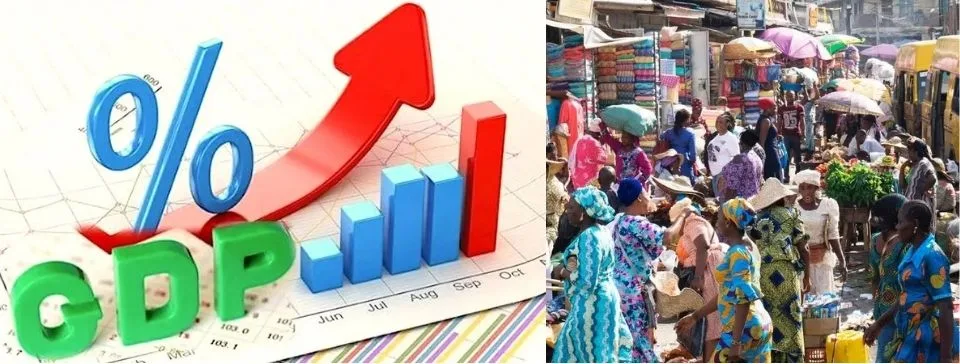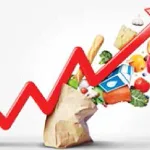The National Bureau of Statistics (NBS), recently announced plans to rebase Nigeria’s Gross Domestic Product (GDP) and the Consumer Price Index (CPI) used to measure inflation rate in the country.
The last time Nigeria did GDP rebasing was in 2014.
Join our WhatsApp ChannelWith more than a decade already gone by, NBS said some sectors of Nigeria’s economy have experienced significant growth hence the need to capture new changes for proper representation.
What is Rebasing?
Rebasing generally refers to the process of recalculating the size of a country’s economy, typically using a new base year or updated methodology. This process aims to provide a more accurate picture of the economy’s true size and structure.
Rebasing the GDP involves updating the base year used for measuring the country’s GDP. This is done to reflect more accurately the current structure of the economy, considering changes like the introduction of new sectors, changes in consumer behavior, inflation, and more. The GDP rebasing done in 2014, was said to have led to a significant increase in the reported figure, making Nigeria the largest economy in Africa at that time, as it included sectors that were previously excluded.
Why rebasing?
According to economic experts, there are various reasons for rebasing:
•Outdated base year: If the base year used for calculating GDP is outdated, it may not accurately reflect the current structure of the economy. Experts stated that the base year for measuring GDP is usually updated to a more recent year to better reflect current economic conditions.
•Changes in economic structure: Significant changes in the economy, such as shifts from agriculture to services, may require rebasing to accurately capture these changes. For instance information and communication technology, e-commerce, arts, culture and tourism, and marine economy were among sectors cited by NBS.
•Improved methodology: Advances in statistical techniques and data collection methods may allow for more accurate estimation of GDP.
Impact of Rebasing on Economy
A development economist and lecturer at University of Africa, Toru-Orua, Bayelsa State, Dr Aduku Ebikabowei, highlighted the impact of rebasing on the economy.
According to him, a lot of changes have occurred in the economy since the past 11 years when the last rebasing exercise was done, asserting that this is the right time to do it in order to accurately capture the true size of Nigeria’s GDP and inflation data.
He said the World Bank recommended that every country should rebase every five years.
“So, that is enough time to rebase because within this period between 2014 to 2025 a lot of changes have taken place in the economy,” Ebikabowei stated in an interview with Prime Business Africa.
On the changes in the economy in the last 11 years, he observed that sectors like ICT, digital economy and blue economy were not really making significant contributions to the economy like in recent times and were not captured in the 2014 rebasing.
“Since the rebasing was done in 2014 any changes that have occurred, any new sector in the economy that has come up will not be included in the calculation of the GDP and the CPI until it is rebased. So that’s to tell you that since the blue economy and digital economy were not in vogue as of 2014, it means these things were not included in the calculation of our GDP. Their contribution to GDP is not captured. So until we rebase, these things will not be captured. So, if we rebase, these things will not be captured.

“When they are captured, you can now see their contribution to GDP appearing as reports in the CBN statistical bulletin and some other reports.
“So it is the right time, because a lot of changes have taken place.”
READ ALSO: Nigeria’s GDP Rises By 3.2% In Q2- NBS
On the side of inflation, he noted that a lot of changes have taken place, especially after the removal of fuel subsidy policy, causing changes in consumer spending patterns. “The spending patterns of consumers have changed. The way we spent money in 2014, cannot be compared to the way we spend money now. So the spending patterns have changed, prices have changed,” he stated.
He emphasised that the development has necessitated rebasing the Consumer Price Index to reflect the new inflation rate.
“We need to rebase to capture these things, because their contribution to the economy, I think, is really big now, and these sectors are playing key roles in the national economy.”
Speaking on the impact on the economy, the economist highlighted that the rebasing will bring changes in the size of the GDP.
He noted after the 2014 rebasing, Nigeria became the largest economy in Africa but today, the country has dropped to fourth position.
He added that there will be changes in the debt to GDP ratio, and per capita income, among other economic indicators if the GDP size increases after rebasing.
“Once there is an increase in our per capita income, it means there is economic development because per capita income is an indicator of development,” he explained.
READ ALSO: Why GDP Growth May Not Improve Living Standards For Nigerians- Firm
The economic expert who is also director of Opportunity Research group, averred that the changes that may occur after rebasing, would affect interpretation of economic indicators and policies that are to be made going forward.
“Rebasing provides a more accurate picture of the economy’s size and structure. Accurate GDP estimates enable policymakers to make informed decisions about economic development, taxation, and resource allocation,” the economic expert further emphasised.
READ ALSO: Why NBS Will Add Drug Trafficking, Prostitution To Calculate Nigeria’s GDP
However, Co-founder of Veriv Africa, Basil Abia, said he doesn’t see much changes coming in terms of the GDP expectations in 2025, but the CPI may experience significant changes in the year after the rebasing.
According to NBS data, Nigeria’s economy as measured by GDP grew by 3.46 per cent year-on-year in Q3 (between July and September) 2024.
The headline inflation rate, according to NBS, rose to 34.80 per cent in December from 34.60 per cent in November, with food and non-alcoholic beverages contributing the most to price pressures.
During his budget presentation at the National Assembly in December, President Tinubu said the target is to bring down the inflation rate to 15 per cent this year.
Abia, who spoke when he appeared on Channels Television Business Morning recently, said that according to the International Monetary Fund and World Bank economic outlook released recently, Nigeria is unfortunately still within the 3% range. He said his organisation has made a prediction of best case scenario of 3.64% and worst case scenario of 2.5%.
He explained that the methodology behind rebasing GDP is different from that of the CPI. “With the CPI rebasing, they’re changing both the weight reference period as well as the price reference period. The weight reference period will be 2023 and then the price reference period will be from 2024 so those are the base years with which they’re using to analyze and calculate change in prices, aggregate change in prices, within the context of the base year as the fulcrum.
“Now, with this base year that has now been changed to the Peak period of 2024 you can expect significant changes, because unlike the GDP, we are not expecting a lot of changes.
“In CPI rebasing, when you are increasing your price items from over 740 items calculated to over 960 items, and then you are recalibrating the weighting, so the food rating, for instance, technically used to be 51% based on the 2009 price reference period. That was the weighting that they were using. Now they have changed the weighting.
“So weighting will now be 40% so when you’re reducing the weighting and you’re increasing the amount of items that you’re calculating for, price aggregate changes definitely, you should see a significant CPI reduction.”
Victor Ezeja is a passionate journalist with seven years of experience writing on economy, politics and energy. He holds a Master's degree in Mass Communication.















